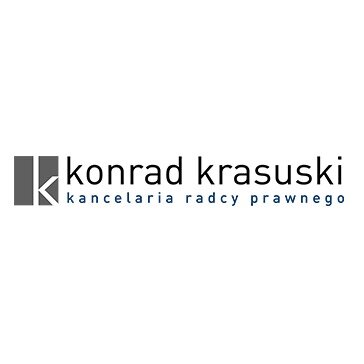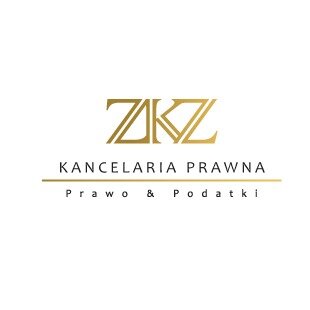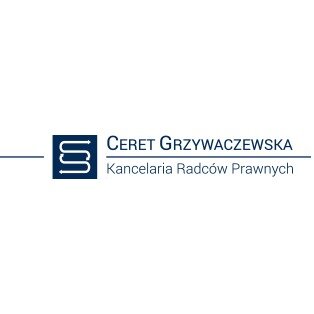Best Copyright Lawyers in Poland
Share your needs with us, get contacted by law firms.
Free. Takes 2 min.
Or refine your search by selecting a city:
List of the best lawyers in Poland
About Copyright Law in Poland
Copyright law in Poland is governed by the Act of 4 February 1994 on Copyright and Related Rights. This legislation aims to protect the interests and rights of intellectual property creators, covering a wide range of works including literature, music, art, and software. Polish copyright law is harmonized with EU law, ensuring protection for both creators and users across the European Union. The law grants authors exclusive economic and moral rights, allowing them to control the use of their works and receive compensation for their creative efforts.
Why You May Need a Lawyer
There are numerous situations where individuals or businesses may require legal assistance regarding copyright matters in Poland:
- Content Creation and Licensing: Whether creating content or utilizing an existing work, understanding licensing agreements and rights is crucial.
- Infringement Disputes: If you believe someone has used your copyrighted work without permission, or you are accused of infringement, legal guidance is essential.
- Intellectual Property Management: Businesses may need assistance with managing their IP portfolios, ensuring proper registration, and strategizing protection.
- Contractual Agreements: Drafting and negotiating contracts involving copyright, such as publishing or distribution agreements, often require professional legal expertise.
- Digitization and Online Use: With the growing importance of digital media, understanding copyright implications in digital dissemination is critical.
Local Laws Overview
Key aspects of copyright law in Poland include:
- Economic and Moral Rights: Authors have economic rights allowing them to exploit their work and moral rights ensuring the protection of personal connections with their work.
- Duration of Protection: Generally, copyright protection lasts for 70 years after the author's death, after which the work enters the public domain.
- Certain Limitations and Exceptions: Polish law includes exceptions for private use, educational purposes, and certain public performances, under specific conditions.
- Collective Management Organizations: These entities, such as ZAIKS, manage the rights of authors, ensuring proper distribution of royalties.
- Injunctions and Remedies: Polish courts are empowered to issue injunctions and award damages in cases of copyright infringement.
Frequently Asked Questions
What types of works are protected by copyright in Poland?
Copyright in Poland covers a wide range of works including literary, artistic, musical, photographic, audiovisual, and software creations. The work must be an original creation of the mind and fixed in a tangible medium.
How do I register a copyright in Poland?
No formal registration is required for copyright protection in Poland. Copyright arises automatically upon the creation of a work and its fixation in a tangible medium.
Can I transfer my copyright to someone else?
Yes, economic rights in a copyright can be transferred to others through written agreements. Moral rights, however, remain with the author.
What should I do if someone infringes my copyright?
If you suspect copyright infringement, consult a lawyer to explore legal options. Potential actions include issuing cease-and-desist notices, seeking injunctions, or pursuing legal action for damages.
Are there any exceptions to copyright protection under Polish law?
Yes, there are exceptions for private use, educational purposes, commentary or criticism, and certain public performances. These exceptions have specific legal limitations and requirements.
How are royalties managed in Poland?
Collective Management Organizations (CMOs) like ZAIKS manage royalties on behalf of creators in Poland. They collect and distribute royalties to authors for the use of their works.
How long does copyright protection last in Poland?
Copyright protection in Poland generally lasts for 70 years after the death of the author. For joint works, the term is 70 years from the death of the last surviving author.
What actions can courts take against copyright infringement?
Courts in Poland can issue injunctions to prevent further infringement and award damages to the rights holder, as well as order the destruction or confiscation of infringing copies.
Do I need permission to use someone else's copyrighted work?
Yes, using someone's copyrighted work typically requires permission from the rights holder, usually obtained through a licensing agreement.
What is fair use, and how does it apply in Poland?
Poland has similar provisions to "fair use" under the concept of "permissible free use," allowing limited use of copyrighted material without permission, for purposes such as education, news reporting, or parody, subject to specific conditions.
Additional Resources
For further information and assistance, consider the following resources:
- ZAIKS: The Polish Society of Authors and Composers is a key organization for managing authors' rights and royalties.
- Ministry of Culture and National Heritage: They provide guidance and support on copyright matters in Poland.
- Legal Publications: Consult academic journals or legal publications specializing in intellectual property law.
- Online Courses and Workshops: Various educational platforms offer insights into the complexities of copyright law.
Next Steps
If you need legal assistance with copyright issues in Poland, consider the following steps:
- Assessment: Clearly identify the copyright matter or concern requiring legal advice.
- Research: Research legal professionals or firms specializing in copyright law in Poland.
- Consultation: Schedule a consultation to discuss your case and explore legal options and potential outcomes.
- Engagement: Once you have selected a lawyer, engage their services to represent and guide you through legal processes.
- Legal Strategy: Work closely with your lawyer to develop a strategy and address your copyright concerns effectively.
Lawzana helps you find the best lawyers and law firms in Poland through a curated and pre-screened list of qualified legal professionals. Our platform offers rankings and detailed profiles of attorneys and law firms, allowing you to compare based on practice areas, including Copyright, experience, and client feedback.
Each profile includes a description of the firm's areas of practice, client reviews, team members and partners, year of establishment, spoken languages, office locations, contact information, social media presence, and any published articles or resources. Most firms on our platform speak English and are experienced in both local and international legal matters.
Get a quote from top-rated law firms in Poland — quickly, securely, and without unnecessary hassle.
Disclaimer:
The information provided on this page is for general informational purposes only and does not constitute legal advice. While we strive to ensure the accuracy and relevance of the content, legal information may change over time, and interpretations of the law can vary. You should always consult with a qualified legal professional for advice specific to your situation.
We disclaim all liability for actions taken or not taken based on the content of this page. If you believe any information is incorrect or outdated, please contact us, and we will review and update it where appropriate.
Browse copyright law firms by city in Poland
Refine your search by selecting a city.
















